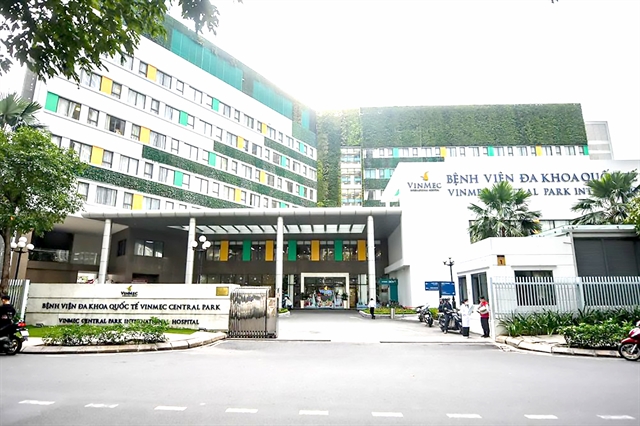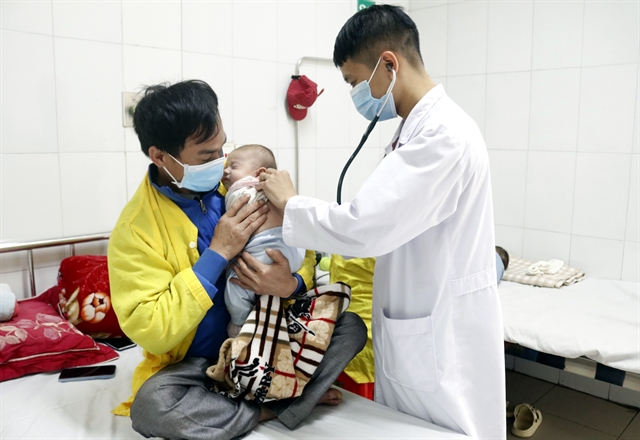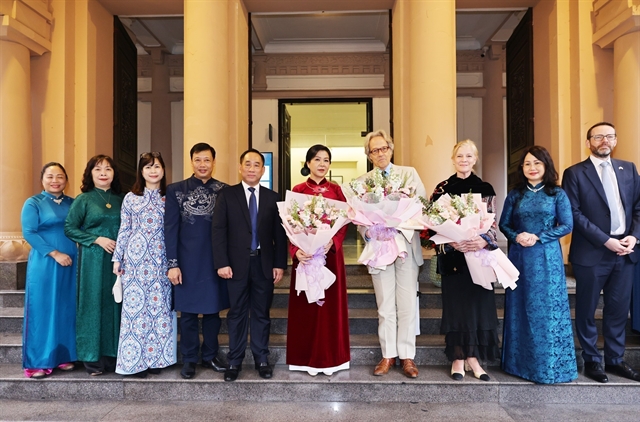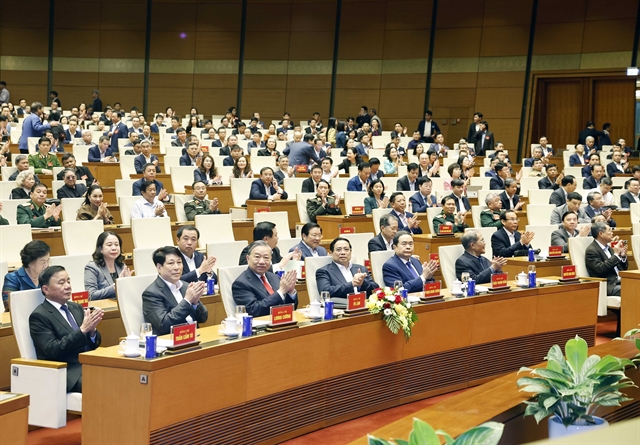 Economy
Economy

 |
| A doctor checks health of a baby at Bắc Giang Province's Obstetrics and Pediatrics Hospital. — VNA/VNS Photo |
HÀ NỘI — Becoming a resident doctor is a dream of many medical students because most successful professors in Việt Nam graduated from resident doctor training courses.
Expanding the training of resident doctors – a highly skilled medical workforce – can meet domestic demand and catch up with current global trends.
A resident doctor is defined as someone who has graduated from medical school and is completing a post-graduate training programme.
Among all occupations, a doctor is the only one that requires continuous postgraduate study to be able to do practical jobs.
Globally, there are currently two main doctor training models.
The first, and most popular, is the six-year university training course in which after graduating, students will have a medical doctor degree. They must study for three to five more years depending on their major before they can practise the job.
The second requires high-school students to have another bachelor's degree, possibly close to medicine, to qualify for medical school and study for the next four years before being allowed to practise.
The second model is mainly popular in countries such as the United States, Canada, Singapore and the UK.
Professor Đoàn Quốc Hưng, deputy director in charge of Cardiovascular and Thoracic Surgery Centre at the Việt Nam-Germany Hospital, said both models require students to continue to take training courses in three to five years which focus on practical skills after basic training (four to six years).
In Việt Nam, during the wars since 1954, doctors were trained for five to six years with no resident doctor training.
In 1974, the Hanoi Medical University opened the country’s first resident doctor training course. Each course trained just 10 to 20 doctors with strict requirements, limited space for accommodation and a shortage of hospitals and lecturers.
Professor Nguyễn Hữu Tú, principle of the Hanoi Medical University, said resident doctors play an extremely important role in meeting the increasing demand for high-quality public medical examination and treatment.
It is necessary to expand the resident doctor training model to meet the needs of society and at the same time catch up with current international trends, he said.
Citing France as an example, he said this country used to have the resident doctor training rate of only about 10-20 per cent which increased to 50 per cent. Now all doctors in France take resident training courses.
The Hanoi Medical University is training the largest number of resident doctors in the country with about 440 resident doctors trained every year in all specialties.
As of 2014, the university trained 1,770 resident physicians practising at major hospitals, mainly central hospitals across the country.
Professor Tạ Thành Văn, chairman of the council of the Hanoi Medical University, said: “We should not limit the resident doctor training quota like what we are doing now.”
Most of the resident doctors work at central-level hospitals. Localities have a lot of demand for recruiting resident doctors. Currently, provincial hospitals have almost no resident doctors, he said.
Of the 1,770 resident doctors who have graduated, only two returned to Hà Nội and fewer than 10 doctors returned to localities to work, he said.
"If we expand resident doctor training following to international trends, we will not be afraid of having a shortage of doctors. Otherwise, many provincial hospitals will have high quality human resources," he said.
In fact, many private hospitals and local health departments such as Tâm Anh, Vinmec Hospital, health departments of Thanh Hóa, Bắc Giang provinces and Hà Nội ordered the Hanoi Medical University to train resident doctors.
Professor Nguyễn Duy Ánh, director of the National Obstetrics Hospital, said: "When completing resident doctor training, we should offer preferential policies or encourage doctors to rotate working at provincial hospitals." — VNS




